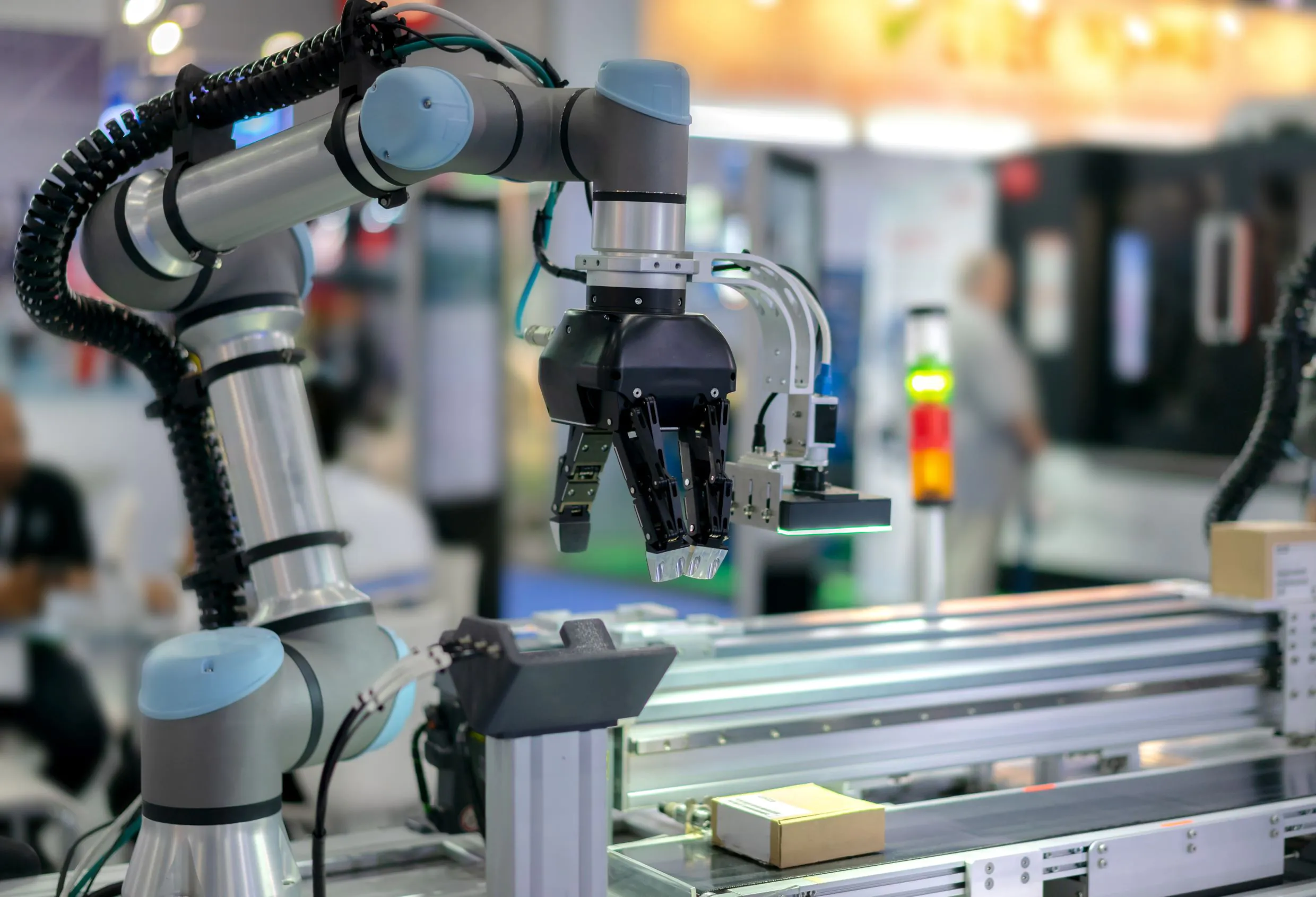What is Smart Manufacturing?
Smart manufacturing is a concept with many names, including digital manufacturing, Industry 4.0, and the industrial internet of things (IIoT). Facilities that integrate it into their operations are called smart factories or digital factories. As these names suggest, smart manufacturing involves heavy use of advanced technology in the manufacturing process, including smart machinery, connectivity between systems, AI, big data, robotics, and more.
The smart manufacturing industry was already experiencing healthy growth before the arrival of COVID-19, but it has become even more valuable since then. With labor shortages, material shortages, supply chain delays, and the need for increased safety and sanitization processes, strategies that improve efficiency and reduce waste are vital. Grand View Research predicts that the global smart manufacturing market will be worth US$589.98 billion by 2028, growing at a CAGR of over 12%. While the pandemic will encourage the development of new smart factories, the benefits of this technology will remain once COVID-19 precautions are no longer needed.
Access Free Manufacturing Industry Insights
Smart Manufacturing Technologies
There is a variety of software and hardware involved in the smart manufacturing ecosystem. Each one brings its own benefits, but together they enhance each other and improve factory operations in a number of ways.
Smart manufacturing technology can allow for remote operation of industrial machinery to cut down on the number of people working in close proximity with each other, as can “cobots” or collaborative robots, which work closely with human counterparts on the factory floor. 5G enables better communication between smart manufacturing systems and greater responsiveness when controlling machinery remotely. Additive manufacturing is fast, flexible, and relatively inexpensive, helping to reduce prototyping and production costs. AI and big data can provide prescriptive analysis to help determine future courses of action, rather than just examine and react to things that have already happened, which can improve operational efficiency and allow factories to perform preventative maintenance and stop problems before they occur.
Manufacturing Execution Systems
Central to a smart manufacturing ecosystem is the manufacturing execution system (MES), which is used to control manufacturing activities, collect and analyze data, and improve efficiency and quality. The MES consolidates multiple functions into one system, improving integration and visibility between the various elements of the manufacturing process. With the aid of the IIoT, the MES can coordinate across an entire factory, as well as between multiple facilities and related systems, allowing it to monitor product quality, inventory levels, error rates, and more.
Sensors, Analytics, and the IoT
Sensor technology has become increasingly affordable to manufacturers, and their ability to provide constant real-time data on machine health, factory conditions, and other matters make them invaluable to smart factories. The IoT connects these sensors to the MES, which can utilize the data to detect issues on the floor, plan predictive maintenance, and reduce downtime due to unexpected problems.
The data collected throughout a smart factory, combined with AI-powered data analytics, allows factory managers to not only diagnose current issues and evaluate past performance, but also to predict and prevent future problems. Prescriptive analytics can determine what needs to be done in the future to improve performance and inform decision-making, helping to reduce waste and improve efficiency and quality.
These systems all receive a boost in effectiveness from the arrival of 5G, which provides faster information transfer, lower latency, and greater bandwidth. It creates a smoother experience for workers operating machinery remotely, with faster response times and feedback. 5G also makes it faster and easier to update machinery and give industrial robots new tasks. While 5G may not add new capabilities on its own, it can improve existing capabilities across multiple smart factory components.
Cobots
Collaborative robots are designed to work closely with humans rather than operating in a separate environment, and can come equipped with AI, LiDAR, and other advanced technology. They perform tasks that are dangerous or repetitive for humans, and respond to commands from the people working alongside them. While cobots are more limited in power and speed than standard industrial robots, they are safer to work around and flexible in the kinds of tasks they can perform.
Additive Manufacturing
Additive manufacturing — or 3D printing — has been available for years, but as technology advances it has become more affordable and accessible to small and medium-sized businesses and easier to integrate into manufacturing processes. It has been primarily used in automotive and aerospace manufacturing but is now spreading into many different sectors, including electronics and medical devices. Additive manufacturing is commonly used for rapid prototyping, as it reduces or eliminates the need for molds, patterns, and other tools, making the prototyping process much more cost-effective. It can also be used as part of the industrial manufacturing process to create parts quickly and inexpensively.
Find Manufacturing Industry Suppliers on BizVibe
There are a wide range of advantages to adopting smart manufacturing, but building a smart factory from the ground up is a substantial investment and won’t be practical for every business. However, smart manufacturing technologies all have their own benefits on their own and can be integrated into existing factories instead. In these cases, planning is essential — both to determine which technologies the business will benefit from the most, and to ensure that disruptions due to these upgrades will be minimal and that employees receive sufficient training on them. Regardless of whether a business decides to build a whole new facility or adopt a new technology to make current processes smoother, smart manufacturing can bring many benefits at a time when safety and efficiency are more important than ever.
Discover Buyers and Suppliers from Manufacturing Sectors Such As:
- Industrial Machinery Manufacturing
- Aerospace Product and Parts Manufacturing
- Motor Vehicle Manufacturing
- Medical Equipment and Supplies Manufacturing
- Hardware Manufacturing
- Machine Shops; Turned Product; and Screw, Nut, and Bolt Manufacturing
- Agriculture, Construction, and Mining Machinery Manufacturing
- Computer and Peripheral Equipment Manufacturing
- Engine, Turbine, and Power Transmission Equipment Manufacturing
- Audio and Video Equipment Manufacturing
- Semiconductor and Other Electronic Component Manufacturing



